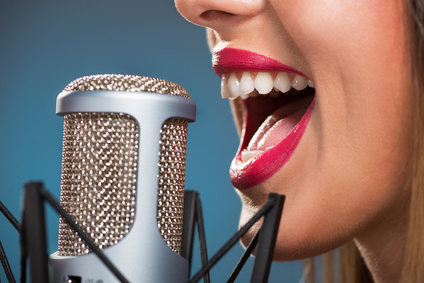Voiceover work demands seamless, exceptional voice recordings every single time. It is for this reason that choosing an excellent microphone should be one of the non-negotiables in audio narration. But among all the brands and models available, how do you really choose the right microphone for voiceover work? Outlined below are some essential considerations.
Warm sound or clear and natural?
Different types of microphones produce different sound qualities. Furthermore, different qualities of sound are required for various kinds of recordings. Warm recordings are typically achieved by a dynamic microphone, while natural-sounding results are the turf of condenser microphones. Audio-book narrations and radio or online podcasts usually require warmer tones while e-learning materials such as training videos call for a more natural, clear-sounding quality. To purchase the most ideal mic for you, you have to identify the kind of sound quality required for your voiceover projects.
Home studio or professional studio?
If you’re recording in a home studio, a good mic choice in terms of pattern is a cardioid microphone. Since this type of microphone rejects noise in less-than-ideal settings, it is a good choice for home or non-studio environments. On the other hand, omnidirectional microphones are better suited for studio environments since these are designed for over-all, expansive sound capturing.
Microphone for voiceover work: does expensive mean best?
Both yes and no. Yes, because many high-priced models are designed for exceptional results and often come with extra, useful features. However, expensive doesn’t always mean it’s appropriate for you and the voiceover work you do. More than the price tag, the primary considerations should be which sound quality you need to produce and where you will be performing the narration or recording.
Shop around before buying
Before forking out a significant amount on your next microphone-buying trip, make sure you have looked at several brands and models first. By looking around, it means you have to talk to sales people, try the microphones out yourself in stores, and do some research well in advance. Since it is good advice to purchase the best microphone you can afford, you have to ensure that the model is one that works best with your voice. Also, the features — whether in terms of portability or noise canceling — should be those which you can use for your voice acting or narration projects.
A microphone for voiceover work is one of the most important purchases you will make throughout your career, so make sure you invest in the best you can.






